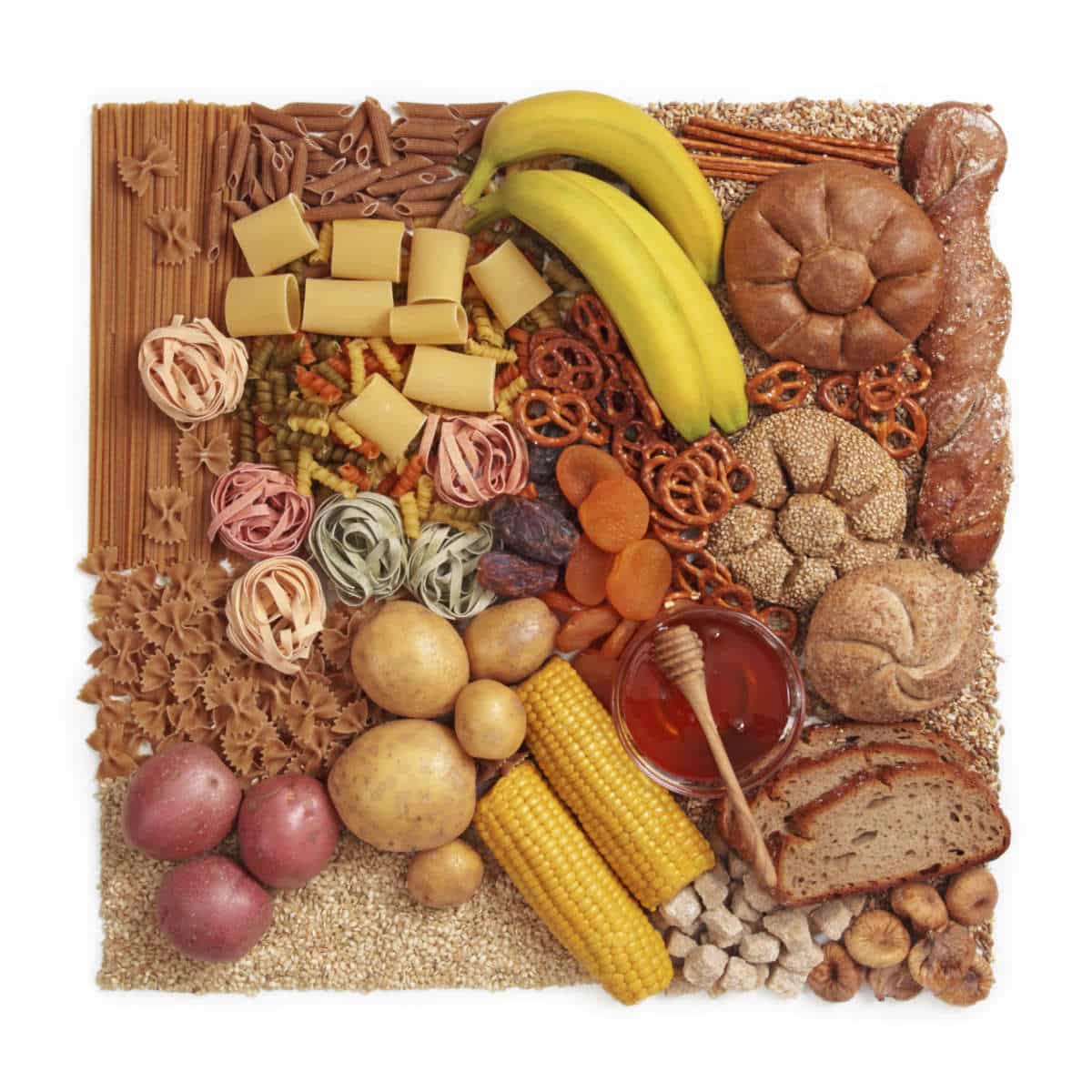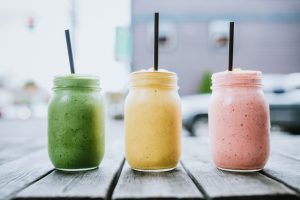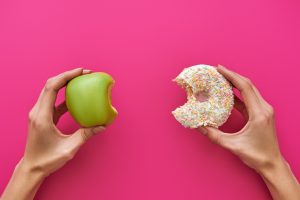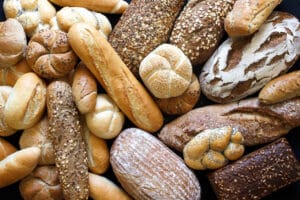Recent headlines suggesting that low-carb diets are more effective than low-fat diets in promoting weight loss have sparked a renewed interest in giving up everything from carrots to cupcakes. I’ve been flooded with inquiries asking if carbohydrates are bad for us. Emphatically, I say no, quite the contrary. Carbohydrates, like protein and fat, are essential for life. In fact, our bodies convert carbs to glucose and glucose is the preferred source of fuel for our cells and the primary source of energy for our brains.
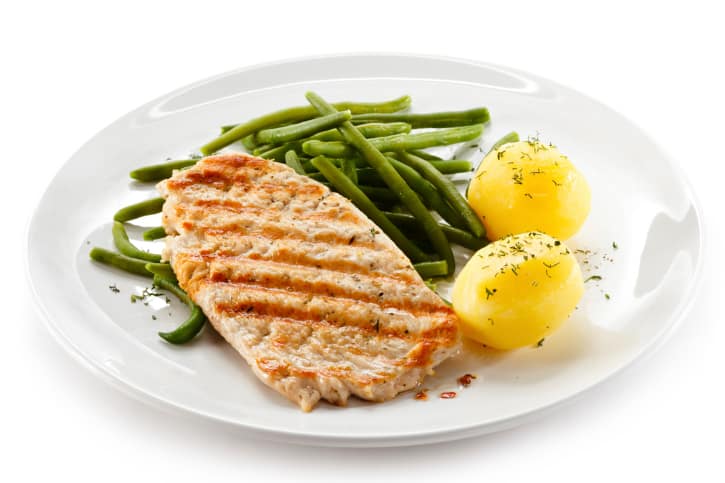
All carbs are not created equal – be selective.
Like the other macronutrients, carbohydrates take many forms that span the nutritional spectrum. Some are among the most nutritious foods available – fruits, vegetables, beans, peas, lentils and whole intact grains. Cutting these “good” carbs from our diet is not the key to controlling our weight. Others come in the form of highly processed, refined products, such as most breads, pastas, crackers, cereals, baked goods, granola bars, candy, fruited yogurts, chips, ice cream and sugary drinks. These are the “bad” carbs to eliminate.
In general, Americans eat too much of the wrong types of carbohydrates, which are often high in added sugar, fat and calories. Instead of cutting carbs indiscriminately, use the information below to assess your intake and make the necessary adjustments to your diet — see if your energy and weight loss efforts don’t improve.
What you need to know:
- Healthy carbs take longer for our body to break down, raising our blood sugar slowly and providing us with a steady stream of energy without spiking our insulin levels. Refined carbs, on the other hand, are digested quickly, spiking our blood sugar and insulin and causing fluctuations in energy levels. After menopause, we become more insulin resistant, making it more difficult for our bodies to handle these surges. Excess insulin in the bloodstream encourages our bodies to store fat rather than burn it. So it becomes even more important as we age to eliminate the unhealthy insulin-spiking foods from our diet.
- Consumption of refined carbohydrates is associated with an increased risk of obesity, diabetes, heart disease and some cancers.
- Getting older brings a shift in body composition – our bodies naturally exchange muscle for fat, which slows down our metabolism. We also tend to become less active. Consequently, we need fewer calories, but no fewer nutrients. Filling up on low calorie, nutrient dense carbs like vegetables ensures we’re giving our body the necessary vitamins and minerals it needs while protecting ourselves against unwanted weight gain. Additionally, by replacing some energy dense carbohydrates with lean protein, we can slow the progression of muscle loss and keep us satisfied longer.
What you need to do:
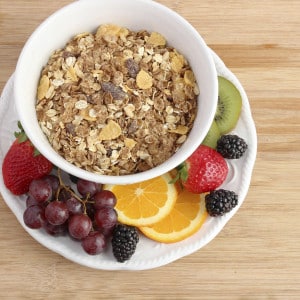
Re-balance your macro-nutrients: Our nutritional needs change after menopause. Because we need fewer calories, more protein, and less energy producing carbohydrates, I recommend eating roughly 40-50% of your calories from carbs, 30-40% from healthy fat and 20-25% from protein.
Fill up on the “good” stuff: Veggies rule, fruit is nature’s dessert, and I prefer fibrous legumes to grains. Each day, eat 6-10 servings of non-starchy veggies, 1-2 medium size pieces of fruit (or a cup of berries or fruit salad) and, depending on your level of activity, 1-3 servings of beans, lentils or minimally processed grains such as oatmeal, brown rice, quinoa, whole-wheat pasta or 100% whole grain bread. A serving size is roughly 2 cups of lettuce or greens, ½ cup of chopped fruit, cooked vegetables, grains, or legumes, 1 cup of raw veggies or 1 slice of bread.

Avoid empty calories: To maintain or lose weight, stabilize your energy, and reduce your risk of chronic disease, you need to significantly reduce refined carbohydrates from your diet. Does this mean you can’t have a piece of cake, a slice of pizza, or a few cheese and crackers occasionally? No, simply make these choices the exception not the rule.
Eat lean protein at each meal: Most of us need between 20-30 grams of protein at each meal and roughly 10-15 grams of protein for snack. Good lean sources include beans, tempeh, tofu, low or no-fat unsweetened dairy, eggs, fish, seafood, poultry and grass-fed meats.
Don’t fear fat: We need it! Include a little healthy fat at each meal to keep your metabolism humming and your taste buds satisfied. Best sources: ¼ avocado, 2TBSP nuts or seeds or 1TBSP unsweetened nut butters or olive and other plant oils.
The bottom line: Carbohydrates aren’t the culprits. Don’t cut them out of your diet completely, but be selective and avoid processed foods whenever possible. It’s OK to enjoy a banana and a slice of whole grain bread with a little nut butter, but the walnut banana bread from your favorite coffee shop – not so much.
This article is for informational purposes only, is not intended to diagnose, treat, cure or prevent any disease, and is not a substitute for medical advice.

